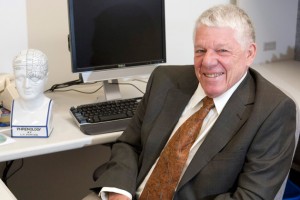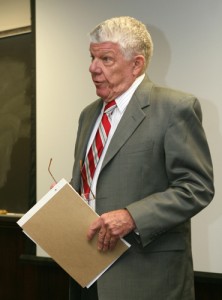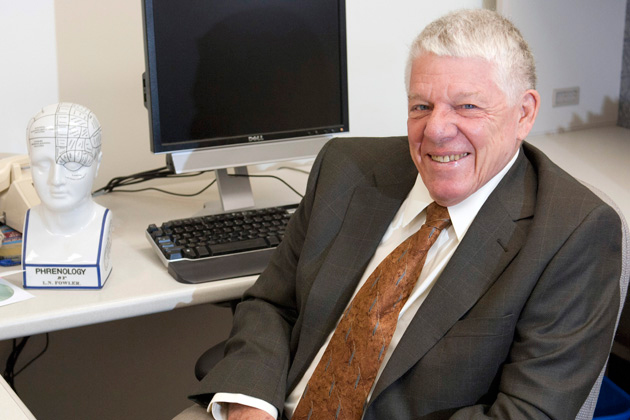
When he played second base in varsity baseball at Gloucester (Mass.) High School, Skip Lowe’s team lost a critical game to Belmont High, where Wilbur Wood was pitching. Wood was signed by the Red Sox right out of high school. Many years later, while pitching for the Chicago White Sox, he was hit by a ball that shattered his left kneecap.
When Lowe was a senior, the Gloucester High team lost the state championship 11-9 to St. Mary’s of Lynn, Mass. Tony Conigliaro played for St. Mary’s, and he was signed by the Red Sox at age 17. Five years later, he was hit in the cheekbone by a pitch, severely injuring his left retina.
Both Wood and Conigliaro came back from their injuries. Lowe, meanwhile, went on to Bowdoin College for a BA (where he played center field); then to the University of New Hampshire for a master’s degree in clinical psychology (driving down to the North Shore of Massachusetts twice a week to play nearly every position in the North Shore Summer League); and later to Carnegie Institute of Technology for a master’s in organizational psychology (and playing semi-pro softball). Then he earned a Ph.D. in social psychology from Carnegie-Mellon.
But along the way he had adopted the lessons of baseball with its wins, losses, triumphs, and disappointments: Try hard. Stick with it. Call it as you see it. Motivate your team.
Last summer, Charles A. Lowe, as he is more formally known, stepped down from being department head in psychology after 13 years (and professor for 41 years, both jobs he loved) and took on a new challenge with a long title: Interim Vice Provost for Graduate Education and Dean of the Graduate School.
A challenge because there have been nine deans of the Graduate School in 18 years. Committees looking into whether to decentralize or centralize the school have come and gone. And the Graduate School staff has shrunk from 30 to 11 over the past decade.
The prospects excite Lowe.
“I said yes to the provost’s invitation to become dean of the Graduate School because I really and truly cared about graduate education,” he says. “This is now where UConn needs to go.”
A new direction
With UConn ranked 19th in the country among public research institutions, with a main campus full of new buildings, and with a diverse and nationally recruited undergraduate student body, it’s time to turn our attention to graduate-level education and research productivity, he says.

“Graduate students are the glue that keeps this university running,” he says. In psychology, which has graduated 869 Ph.D.’s over the years, he increased annual funding for graduate students and made travel funds available so they could present research papers at national conferences. With that incentive, psychology grad students increased their annual productivity from two to six papers per year. Their success in obtaining federal grants grew, too, improving the department’s ability to recruit nationally.
Psychology at UConn ranks second in the country (out of 400 institutions) for federal research expenditures. Its social psychology division has been rated among the best.
Many of the psychology graduate students who earn advanced degrees from UConn stay in the state, and Lowe is gathering data to support his claim that graduate students in other departments do, too. As professionals, graduate alumni earn higher salaries and are very likely to give back to UConn as they become successful, he suggests.
His goal is to raise awareness of the importance of graduate education “as something that UConn has done well and now needs to do better.” Strengthening graduate education, in turn, enriches undergraduate education, he believes.
Setting priorities
Administratively, he wants to smooth the operation of the Graduate School by improving data collection, assessing whether faculty oversight is sufficient on what has been a proliferation of graduate certificates and programs, and getting the school’s rules and regulations published in the catalog so that policies are clear. His own training as a social psychologist and as a coach is evident in his plans for the Graduate School’s staff: “Facilitate communication, generate enthusiasm, and build a cohesive, dedicated, and productive team.”
His top priorities, however, are to advocate for graduate students and remove barriers to their success.
Removing barriers and using his social savvy are what Lowe does best, says a colleague in psychology: “He knows how to handle people – how to talk to them.”
He also knows something about the powers of persuasion. As a consultant for many years in market research for major corporations and ad agencies, he conducted focus groups around the country and learned about how people perceive information and what influences them.
And he brings to bear lessons he learned as a baseball player and later applied in coaching his own sons’ soccer and baseball teams, including a Mansfield soccer team that won a state championship.
“Motivating kids, facilitating them to do their best, and making them feel good about themselves. Those principles are relevant to being an effective department head and to being an effective dean of the Graduate School,” says Lowe.



